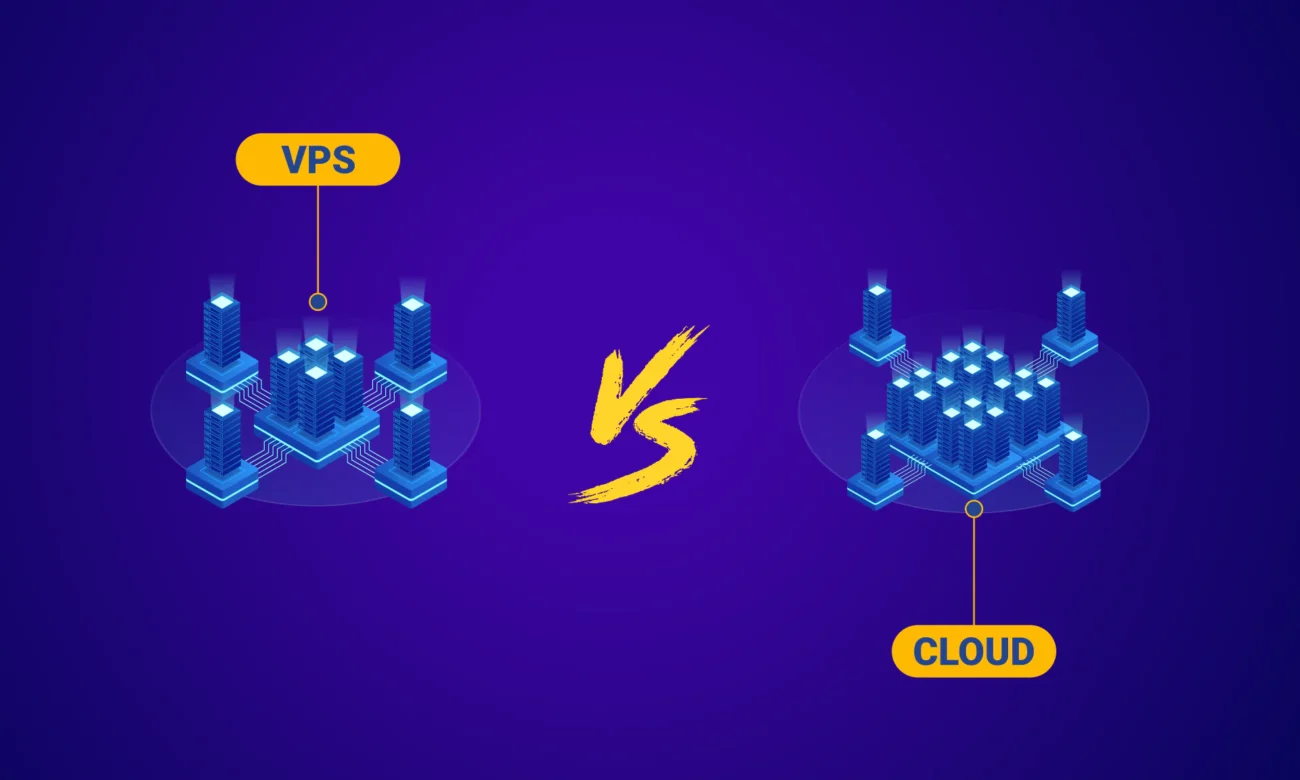
Should you choose shared or VPS hosting for your website? Although these hosting services are very similar, their features and benefits vary.
So, figuring out what is exactly needed for your project may be difficult. This article will compare the characteristics of cloud VPS reliability and traditional VPS advantages and explain how to choose the one that is ideal for your website.
Public Hosting
A service on a shared server where a predetermined number of user accounts are placed is referred to as virtual hosting, also known as shared hosting. Both applications and web pages are hosted on it.
The Traditional VPS customization user is granted access to the control panel and FTP/SSH access to manage the account, such as uploading the website to the server.
Personal Virtual Server

A virtual private server (VPS), often referred to as a virtual dedicated server (VDS), is a hosting option for websites and applications that provides a wealth of functionality and possibilities for your project to be professionally developed on the server. When you buy VPS hosting, the user is less dependent on the servers of other users, may set up his own programs, including the control panel, and gets a dedicated IP address (especially on VDS).
With a VDS or VPS, you may choose the OS, control panel, and the number of required IP addresses in addition to the server virtualization method. You are given access to the control panel, a DNS account, and root power to the server after making a payment.
Shared Hosting Benefits
While being the most straightforward and affordable option, shared hosting has some advantages:
- management is simple;
- everything is set up to function with the service already;
- quick installation of CMS;
- the presence of a website builder (for some hosters);
- there is always a test period (available on VPS upon request, not for all projects);
- only the necessary functionality, nothing more.
Together with the benefits, it’s important to note the drawbacks, which include a shared server IP and total reliance on neighbors. These flaws are not acceptable for all projects, in which case VPS or VDS must be considered.
Benefits of Either VPS or VDS

The level of hosting service following shared hosting is VPS shared hosting. This is a more expensive service, but it is on VPS that there are much more options for customization. Advantages of VPS hosting:
- more resources;
- SSH access by default;
- dedicated IP, you may get more if needed;
- OS and control panel selection;
- versatile features to let you “personalize” the server;
- separation from nearby servers.
The difficulty of setting up the server, more waste on the management panel (if you choose a paid one), and the greater cost of the server overall are among the drawbacks.
Features of Cloud Hosting
ishosting.com/en/vps/us is a well-liked cloud-based service that enables users to access resources from providers. The cloud VPS benefits include the fact that the server is always accessible thanks to cloud services. For businesses that are for-profit, any stoppage of work results in financial losses.
Also, there are far fewer chances of data loss with a cloud server. You can always utilize backups even if the data center is damaged.
The cloud is more secure than a virtual server. This is due to the widespread usage of firewalls, VPNs, virtual networks with NAT, backup systems, antivirus software, and other security measures in cloud technologies.
Cloud VPS pricing is approached differently than when utilizing a VPS. Payment is made only for actually consumed resources. In other words, you don’t pay if the server isn’t in use, and you can easily adjust the settings if you need more or less power.
Companies who need their website to be always operational may consider cloud hosting. Online shops, lead-generating websites, and corporate resources are most frequently the ones to decide on the capabilities of such a server.

Here are the cloud advantages:
- High tolerance for faults. Technology is 99.98% accessible. Virtual hosting is accessible at any moment.
- Almost infinite resources. Any quantity of data may be stored on the cloud.
- Flexibility and scalability. In case you want extra power for your services, hosting is simply expandable.
- Safety. Cloud data centers use comprehensive information protection.
- Reliability. There is no risk of loss as data can be backed up. However, as a disadvantage, it is worth noting that some public cloud hosting may require an additional fee for creating a backup copy.
- Small cash outlay. You can avoid having to invest in new computing gear by switching to the cloud. Just paying a monthly fee will get you complete use of the offerings.
What Separates Virtual Hosting from VPS?
No less capability for service management and reliance on server neighbors distinguish virtual hosting from virtual dedicated servers as the primary difference. While root user permissions provide the server owner far more control over the server machine, VPS is a more secluded service.
It should be mentioned that both choices are generally extremely successful. VPS hosting has shown to be more beneficial for projects that require availability and reliability. Cloud technology should be used if you want a completely automated, secure service. This advice is not, however, binding.
Preferably, the decision should only be taken following a thorough project study. Your preferences, the details of the business and the data utilized, the functions of the services and software, monthly service charges, and other factors will all be taken into consideration when selecting a server from a reputable provider.







